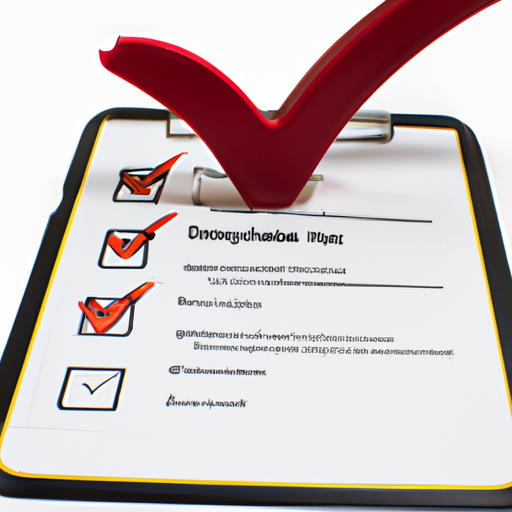In today’s digital age, social media has become an integral part of our daily lives, influencing how we connect and share information. However, for companies in the food industry, navigating the complex landscape of social media claims compliance can be a daunting task. With strict regulations and guidelines set forth by governing bodies, businesses must ensure that their online presence remains compliant and transparent. This article aims to shed light on the importance of social media claims compliance in the food industry, providing businesses with the knowledge and guidance necessary to navigate this evolving legal landscape.
Social Media Claims Compliance For Food Industry
In today’s digital age, social media has become an integral part of our lives. It allows individuals and businesses to connect, communicate, and promote their products or services to a wide audience. For the food industry, social media provides a powerful platform to showcase their products, engage with consumers, and drive sales. However, with great power comes great responsibility, especially when it comes to making claims about food products on social media.
Understanding Social Media Claims
Social media claims refer to any statements, advertisements, or promotions that are made on platforms such as Facebook, Instagram, Twitter, or YouTube. These claims can range from simple statements about the taste or quality of a product to more specific claims about its health benefits or nutritional value. It is important to note that any claims made on social media must be accurate, truthful, and substantiated by scientific evidence.
Importance of Compliance in the Food Industry
Compliance with laws and regulations regarding social media claims is crucial for businesses in the food industry. Making false or misleading claims can not only result in reputational damage but also lead to legal consequences. Consumers have become more conscious about the food they consume and are quick to call out fraudulent or deceptive advertising. In order to protect their brand reputation and maintain consumer trust, businesses must ensure their social media claims are compliant.

Laws and Regulations for Social Media Claims in the Food Industry
Several laws and regulations govern social media claims in the food industry. For instance, in the United States, the Federal Trade Commission (FTC) enforces laws against false or misleading advertising. The Food and Drug Administration (FDA) also has regulations in place regarding health claims made on food products. Additionally, companies must adhere to guidelines and regulations set forth by social media platforms themselves. It is essential for businesses to stay updated with these regulations and ensure compliance to avoid legal repercussions.
Common Challenges and Risks
Complying with social media claims regulations in the food industry can pose several challenges and risks. One common challenge is the limited character count on platforms like Twitter. Businesses must find creative ways to convey accurate information within these constraints. Another challenge is the need for scientific evidence to substantiate claims. Conducting studies and gathering evidence can be time-consuming and expensive, but it is necessary to meet regulatory requirements. Risks associated with non-compliance include damaged brand reputation, loss of consumer trust, financial penalties, and even legal action.
Key Elements of Social Media Claims Compliance
To ensure compliance with social media claims, businesses should consider the following key elements:
-
Accuracy and Truthfulness: All claims made on social media must be accurate, truthful, and backed by scientific evidence. Businesses should avoid making exaggerated or misleading statements about their products.
-
Clear and Legible Disclosures: If any material information is needed to qualify a claim, businesses must ensure that it is prominently and clearly disclosed to consumers. Disclosures should be easily understandable and stand out on the platform.
-
Substantiation: Claims made on social media must be supported by scientific evidence, studies, or data. It is essential to have a reliable substantiation process in place to validate the claims before they are made.
-
Consistency: Businesses should ensure that the claims made on social media align with the claims made on other marketing channels, such as packaging or advertising materials. Consistency is key to avoid confusion and maintain credibility.
Developing a Compliance Strategy for Social Media Claims
Developing a compliance strategy is essential for businesses in the food industry to ensure that their social media claims meet legal and regulatory requirements. A compliance strategy may include:
-
Legal Review: Seek legal counsel to review social media claims and ensure compliance with relevant laws and regulations. Legal professionals with expertise in advertising and food industry regulations can identify any potential issues and provide guidance.
-
Internal Policies and Guidelines: Develop clear and comprehensive internal policies and guidelines regarding social media claims. This includes defining the approval process, providing training to employees, and establishing protocols for monitoring and enforcement.
-
Substantiation Process: Implement a robust substantiation process to validate claims before they are made on social media. This may involve conducting studies, gathering scientific evidence, and working with experts in the field.
-
Record-Keeping: Maintain thorough records of all social media claims, including the substantiation process and any disclosures made. These records can serve as evidence of compliance in case of legal scrutiny.

Best Practices for Social Media Claims Compliance
To ensure social media claims compliance, businesses in the food industry should follow these best practices:
-
Training and Education of Employees: Provide regular training to employees involved in creating and managing social media content. This includes educating them about the laws and regulations governing social media claims and ensuring they understand their role in compliance.
-
Monitoring and Enforcement: Establish a system to monitor social media channels and ensure compliance with the established guidelines. Regular audits and checks are necessary to identify and rectify any non-compliant claims promptly.
-
Third-Party Influencers and Endorsements: If collaborating with influencers or celebrities for endorsements, businesses should ensure that the claims made by these individuals are accurate and in compliance with regulations. Drafting clear agreements and providing guidelines can help mitigate risks.
-
Handling Customer Feedback and Complaints: Promptly respond to customer feedback and complaints on social media platforms. This shows a commitment to addressing concerns and resolving issues, which can help maintain consumer trust and loyalty.
Key Considerations for Food Manufacturers
Food manufacturers have specific considerations when it comes to social media claims compliance. In addition to adhering to regulations and guidelines, they must also ensure compliance with food labeling regulations. Claims made on social media should align with the claims made on product packaging and other labeling materials. Manufacturers should also consider product liability and potential health risks associated with their products when making claims.

Case Studies of Compliance in the Food Industry
Examining case studies of compliance in the food industry can provide valuable insights into successful strategies and best practices. Case studies can showcase how businesses navigate regulatory challenges, develop effective compliance strategies, and uphold consumer trust. They can also highlight the consequences of non-compliance and the importance of adhering to social media claims regulations.
Benefits of Ensuring Social Media Claims Compliance
Ensuring social media claims compliance in the food industry offers several benefits to businesses, including:
-
Maintained Brand Reputation: By making accurate and truthful claims, businesses can build and maintain a positive brand reputation, which is crucial for attracting and retaining customers.
-
Enhanced Consumer Trust: Compliance with regulations instills confidence in consumers, demonstrating the brand’s commitment to transparency and integrity. This can lead to increased customer trust and loyalty.
-
Mitigated Legal Risks: By complying with laws and regulations, businesses can reduce the risk of legal action, financial penalties, and reputational damage associated with non-compliant claims.
-
Competitive Advantage: Differentiating from competitors by providing accurate and substantiated claims can give businesses a competitive edge in the food industry.
Frequently Asked Questions
-
Do all social media claims need scientific evidence? Not all claims require scientific evidence, but claims relating to health benefits or nutritional value typically do. It is important to consult with legal professionals to determine the substantiation requirements for specific claims.
-
What are the consequences of non-compliance with social media claims regulations? Non-compliance can result in legal action, financial penalties, reputational damage, and loss of consumer trust. It is essential for businesses to prioritize compliance to avoid these consequences.
-
Can businesses delete negative comments or feedback on their social media posts? While businesses may have the ability to delete comments, it is generally recommended to respond to negative feedback or complaints in a prompt, respectful, and transparent manner. Deleting or ignoring comments can worsen the situation and damage the brand’s reputation.
-
What role do influencers play in social media claims compliance? Influencers have a responsibility to ensure that the claims they make about products are accurate, truthful, and compliant with regulations. Businesses should work with influencers who prioritize compliance and provide guidelines to ensure accurate messaging.
-
How often should businesses review and update their social media claims compliance strategy? It is important for businesses to regularly review and update their compliance strategy to stay up-to-date with changing regulations and industry trends. An annual review is a good starting point, but adjustments should be made as needed.
